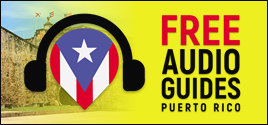Dengue – What You Need to Know
 Dengue is one of the mosquito- borne viruses that can be found across tropical regions, including Puerto Rico. There are usually very few cases reported in Puerto Rico, but it is something people need to be aware of.
Dengue is one of the mosquito- borne viruses that can be found across tropical regions, including Puerto Rico. There are usually very few cases reported in Puerto Rico, but it is something people need to be aware of.
What is Dengue?
Dengue (pronounced DEN-gee) is a disease caused by any 1 of 4 related dengue viruses. The viruses are transmitted to humans by the bite of an infected mosquito. There are 2 types of dengue, with dengue hemorrhagic fever being the more severe, and sometimes fatal, though much less common form of the infection.
Dengue is a very prevalent disease in tropical areas, where frequent rains allows standing water, which is where mosquitoes breed. Dengue is endemic in at least 100 countries such as Asia, the Pacific, the Americas, Africa, and the Caribbean — including Puerto Rico. Dengue viruses may be introduced into areas by travelers who become infected while visiting other areas of the tropics where dengue commonly exists.
How is Dengue Spread?
Dengue cannot be spread directly from person to person, so you can’t catch it from shaking hands, a sneeze, a doorknob or a toilet seat. Dengue is spread from person to person by the bite of an infected mosquito.
Here in Puerto Rico, Aedes aegypti is the principal mosquito carrier of dengue viruses. This species of mosquito is closely associated with humans and their dwellings. They like to live and breed in a place that is close to their food source — humans — and generally in urban areas, where there are more people available for them to bite! Aedes aegypti prefers to rest in darker cool areas, such as under furniture and in closets — convenient for them to bite people indoors and/or around the household and yard.
The mosquito becomes infected with dengue virus when it bites a person who already has the dengue virus in their blood, typically in the time frame just before the infected person starts to have symptoms of the disease. About one week after biting an infected person, the mosquito can transmit the virus while biting a healthy person. A single infected mosquito can infect multiple people, who in turn can infect multiple mosquitoes — and the cycle continues.
What are the Symptoms of Dengue?
Most dengue cases are mild to moderate, with the primary symptoms being high fever, and usually at least 2 other symptoms, such as severe headache, severe pain behind the eyes, joint pain, muscle and bone pain, rash, and mild bleeding (for example, nose or gums bleed, or easy bruising). Generally, younger children and those with their first dengue infection have a milder illness than older children and adults. Symptoms of infection usually begin 4 – 7 days after the mosquito bite and typically last 3 – 10 days.

Dengue hemorrhagic fever is characterized by a fever that lasts from 2 to 7 days, with general signs and symptoms consistent with dengue fever. However, when the fever declines, one may develop symptoms including persistent vomiting, severe abdominal pain, and difficulty breathing. In addition, the patient with dengue hemorrhagic fever has a low platelet count and hemorrhagic manifestations like the tendency to bruise easily or other types of skin hemorrhages, bleeding nose or gums, and possibly internal bleeding. Visible symptoms may include
- black, tarry stools (feces, excrement)
- drowsiness or irritability
- pale, cold, or clammy skin
- difficulty breathing
- vomiting blood
If any of these symptoms appear, go IMMEDIATELY to an emergency room or the nearest health care provider.
What is the Treatment for Dengue?
There is no specific medication for treatment of a dengue infection. People who think they have dengue should use analgesics (pain relievers) with acetaminophen (Tylenol) and avoid those containing aspirin. They should also rest, drink plenty of fluids, and consult a physician. If they feel worse (for example, develop vomiting and severe abdominal pain) in the first 24 hours after the fever declines, they should go immediately to the hospital for evaluation. See your doctor if you suspect that you have dengue.
How to Prevent Dengue
The adult mosquitoes feed (bite) inside a dwelling as well as outside near their "homes", during the day and at night when the lights are on. To protect yourself, use repellent on your skin while indoors or out. When possible, wear long sleeves and pants for additional protection. Also, make sure window and door screens are secure and without holes. If available, use air-conditioning.
Use mosquito spray (Raid Flying Insect, or something similar) in your home and your hotel room. Even though we don’t live in a high dengue area, we still spray dark corners and under the furniture a couple times a day, just as a precaution.
For locals, mosquitoes breed in standing water. If there are any places where water lays around your home or workplace, be sure to dump them on a daily basis. This includes pet water bowls, saucers under plants, buckets and anywhere else water might accumulate. Eliminating places where mosquitoes breed will reduce the number of mosquitoes available to spread dengue. We can all help to break the cycle.
How Widespread is Dengue in Puerto Rico?
The last epidemic we had ended in 2014. Lately, there have been suspected cases, but none confirmed. As a traveler, your chances of getting dengue are very low.
You are not likely to contract dengue at the beach, in the rain forest, on a bio bay tour or on a snorkeling tour — as these are just not places that are that hospitable to the Aedes aegypti mosquito. But remember, no matter where you go or what you do, you might want to take precautions to reduce your chances of getting dengue. I feel it is better to be safe than sorry.

Past Outbreaks
Dengue has reached epidemic levels a couple of times over the past years …
- Epidemic declared 08 October 2012 that lasted until 17 July 2014 (almost 2 years!).
- Epidemic declared 26 February 2010 that lasted until 30 December 2010, and claimed 28 lives.
For More Information
The info we presented here was derived from information contained in various authoritative sources. If you want more detailed information, please refer to the following references that we used in preparing this article.
- Puerto Rico Department of Health Dengue Statistics (in Spanish only) But this will show you how many cases have been reported every week.
- Centers for Disease Control and Prevention / Dengue Branch — Dengue in Puerto Rico
- Centers for Disease Control and Prevention — Dengue Overview & FAQ
- CDC Travelers’ Health Yellow Book
Puerto Rico Day Trips LLC assumes no responsibility regarding your safety when participating in the activities described in this article. Please use common sense! If your mother or that little voice in your head tells you that you are about to do something stupid … then don't do it!













